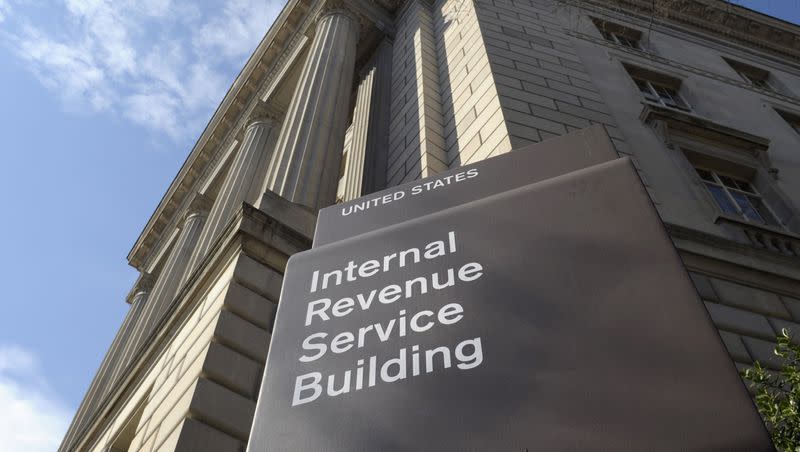Ex-IRS contractor receives 5-year prison sentence for leaking tax returns from Donald Trump and thousands of wealthy Americans

- Oops!Something went wrong.Please try again later.
After pleading guilty in October to disclosing IRS tax return information for Donald Trump and thousands of wealthy Americans without authorization, Charles Littlejohn received a five-year prison sentence Monday, according to the U.S. Department of Justice.
In addition to prison time, Littlejohn will receive 36 months of supervised release and a $5,000 fine.
U.S. District Judge Ana C. Reyes heard the case and called Littlejohn’s actions “an intolerable attack on our constitutional democracy,” per Politico.
She added, “When you target the sitting president of the United States, you’re targeting the office and when you’re targeting the office of the president of the United States, you’re targeting democracy — you’re targeting our constitutional system of government.”
What did Charles Littlejohn do?
According to the case’s factual basis document released by the U.S. District Court, Littlejohn pleaded guilty of stealing and releasing IRS tax returns of former President Trump and thousands of other wealthy Americans.
Littlejohn worked as a contractor at a consulting firm that regularly worked with the IRS.
According to court documents, in late November 2018, Littlejohn uploaded private IRS data to a private website to avoid IRS detection. The court document explains, “That same day, Littlejohn used a personal computer to download the data from the private website. He then stored the data in multiple locations, including on personal data storage devices such as his Apple iPod.”
Several months later, in May 2019, Littlejohn contacted a news organization to discuss releasing the information.
Between Jan. 2020 and that spring, he stole additional tax return records on Donald Trump and related entities and individuals.
In July 2020, he continued accessing “unmasked IRS data associated with thousands of the nation’s wealthiest people, including returns and return information dating back over 15 years,” per the factual basis document.
In Sept. 2020, Littlejohn contacted another news organization, and the news organization has since published “nearly 50 articles using the returns and return information.”
The New York Times released an article titled, “Long-concealed Records Show Trump’s Chronic Losses and Years of Tax Avoidance” in Sept. 2020, and ProPublica released “The Secret IRS Files: Trove of Never-Before-Seen Records Reveal How the Wealthiest Avoid Income Tax” in June 2021.
In Oct. 2023, Littlejohn pled guilty to claims he “was knowing and willful” as he “abused a position of trust and deployed highly specialized technical skills in furthering his criminal activity.”
The New York Times responds to Littlejohn’s sentence
Charlie Stadtlander, a spokesperson for The New York Times, said the reporting based off Littlejohn’s documents “played an important role in helping the public understand the financial ties and tax strategies of a sitting president,” adding that such information is important to voters.
One of Littlejohn’s lawyers, Lisa Manning, attributed her client’s actions to a “deep, moral belief” that Americans “had a right to know the information,” The New York Times reported.
Meanwhile, Heather Hill, the Treasury Inspector General for Tax Administration’s inspector general, said Littlejohn’s sentence “should serve as a warning to anyone considering emulating (his) actions,” per a Justice Department press release.
Prosecutors in a court filing similarly said, “A free press and public engagement with the media are critical to any healthy democracy, but stealing and leaking private, personal tax information strips individuals of the legal protection of their most sensitive data.”

